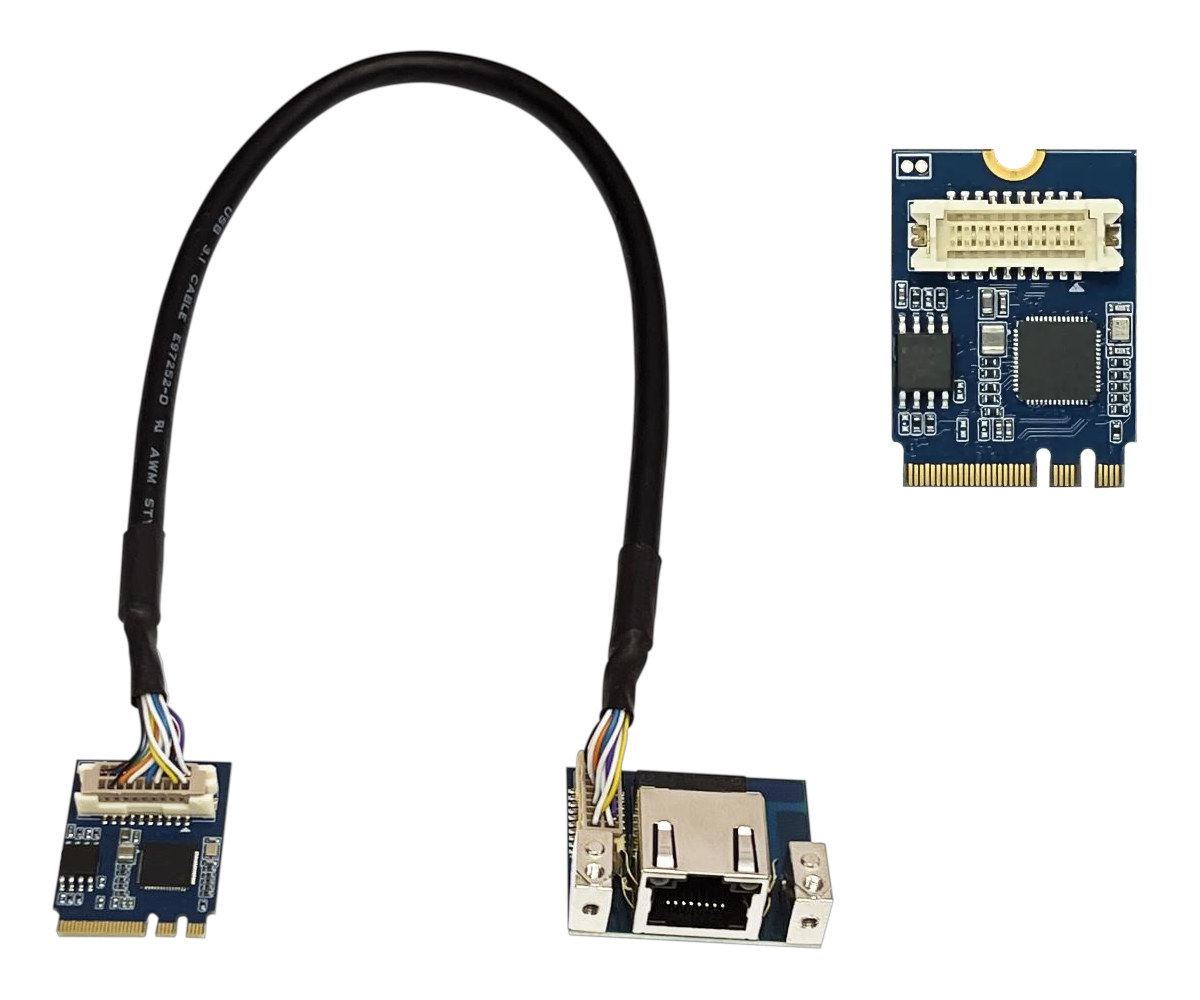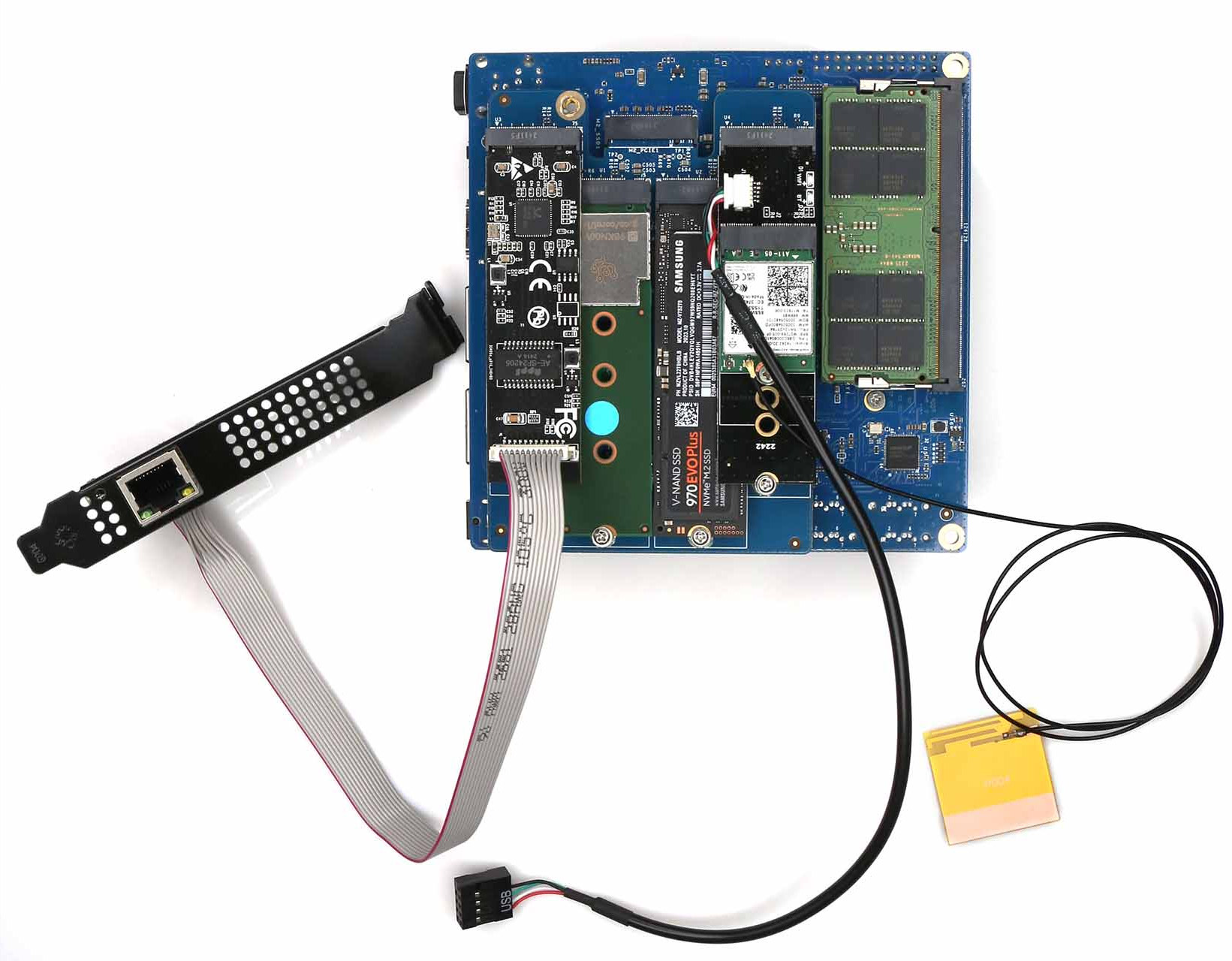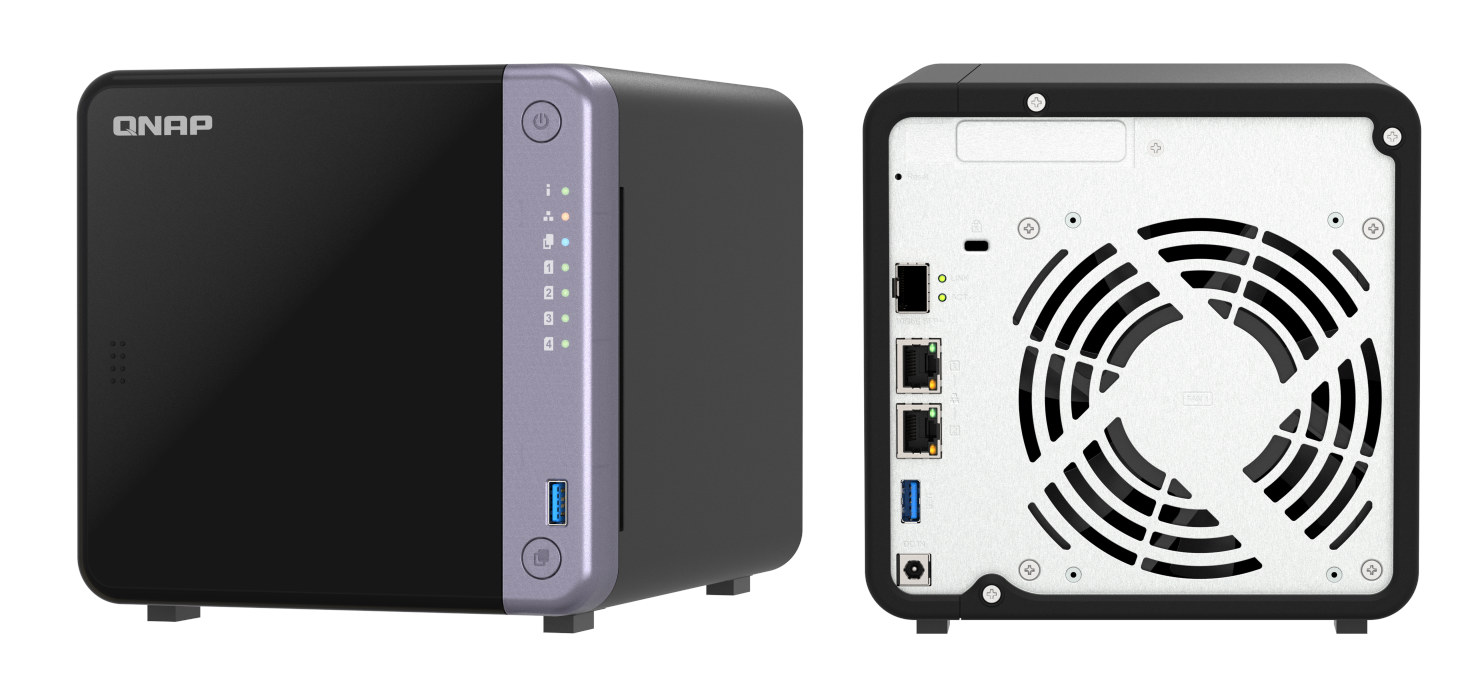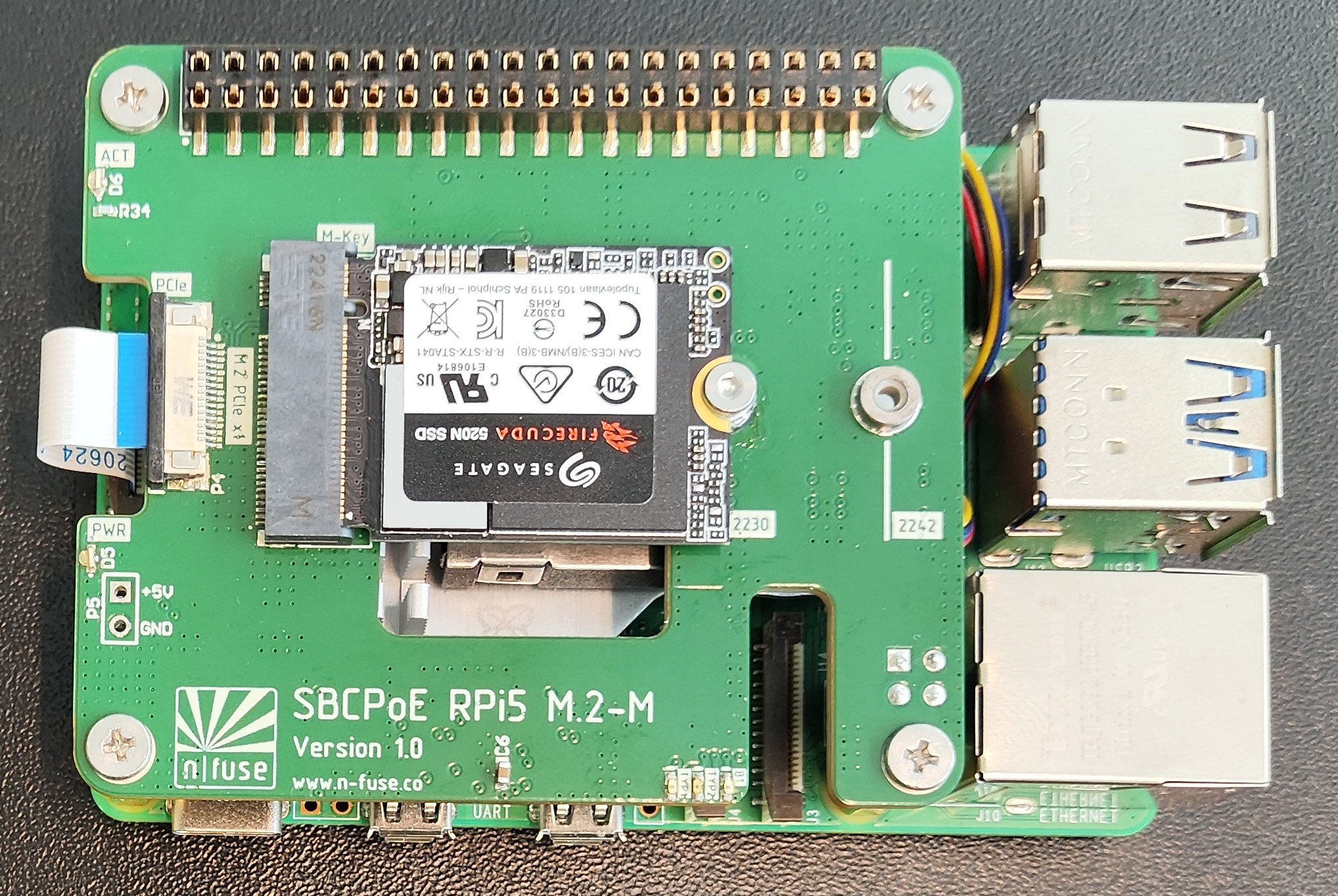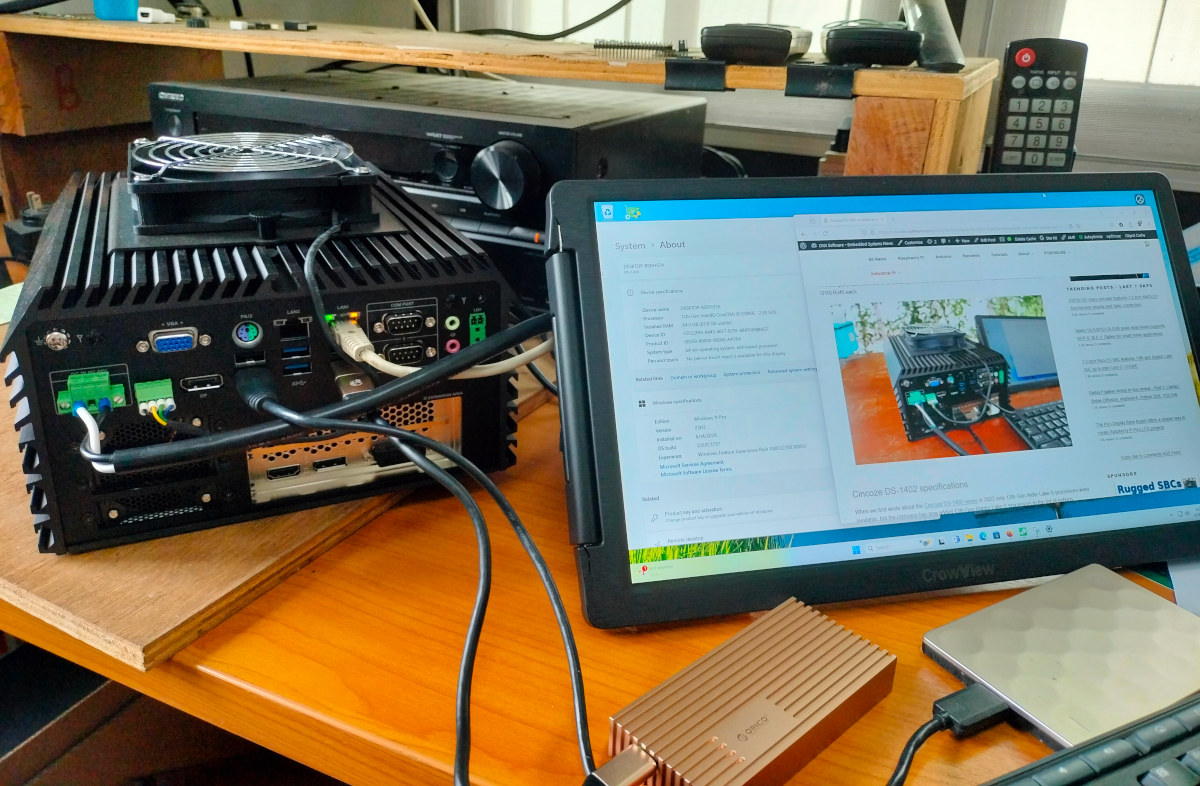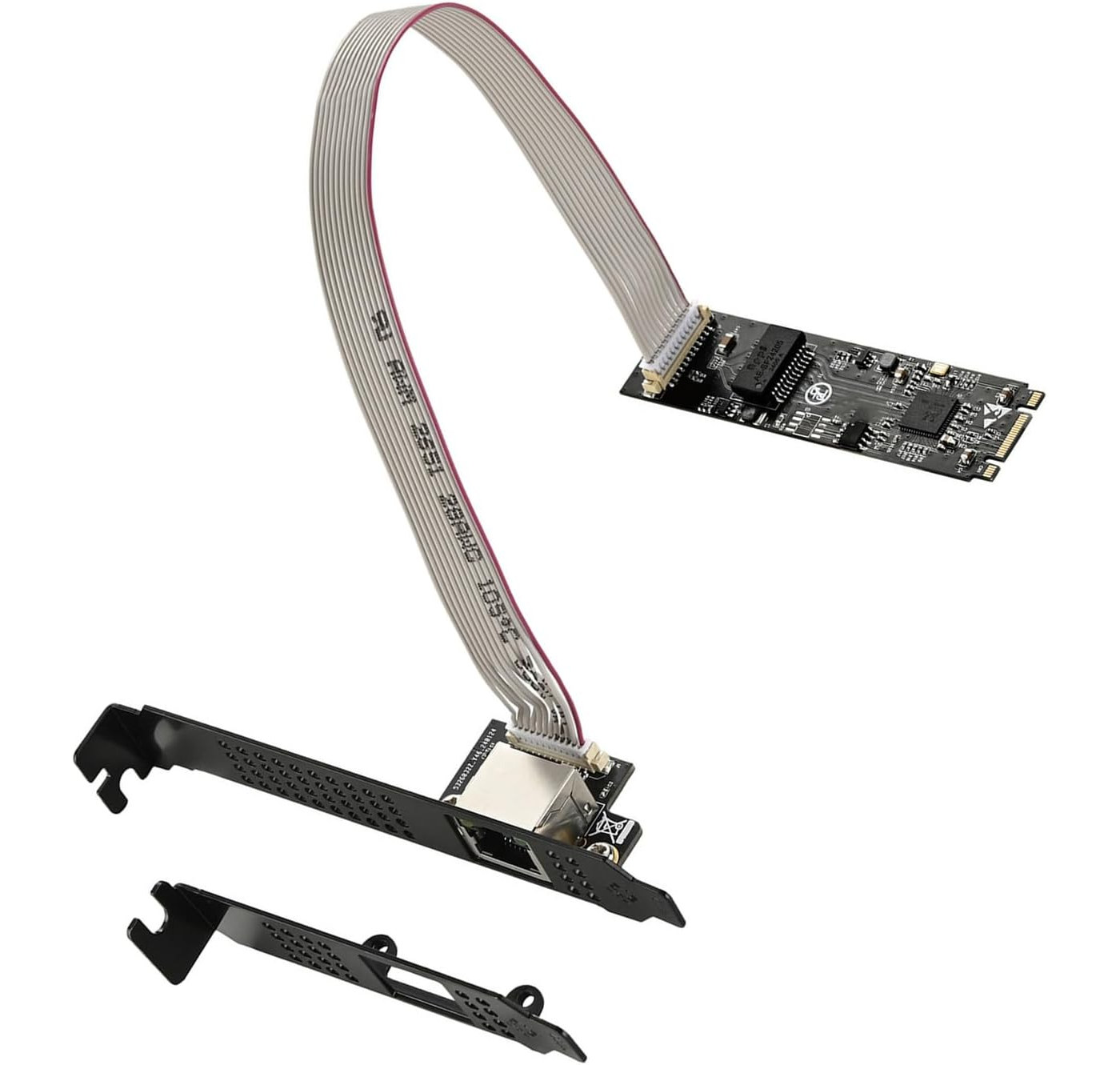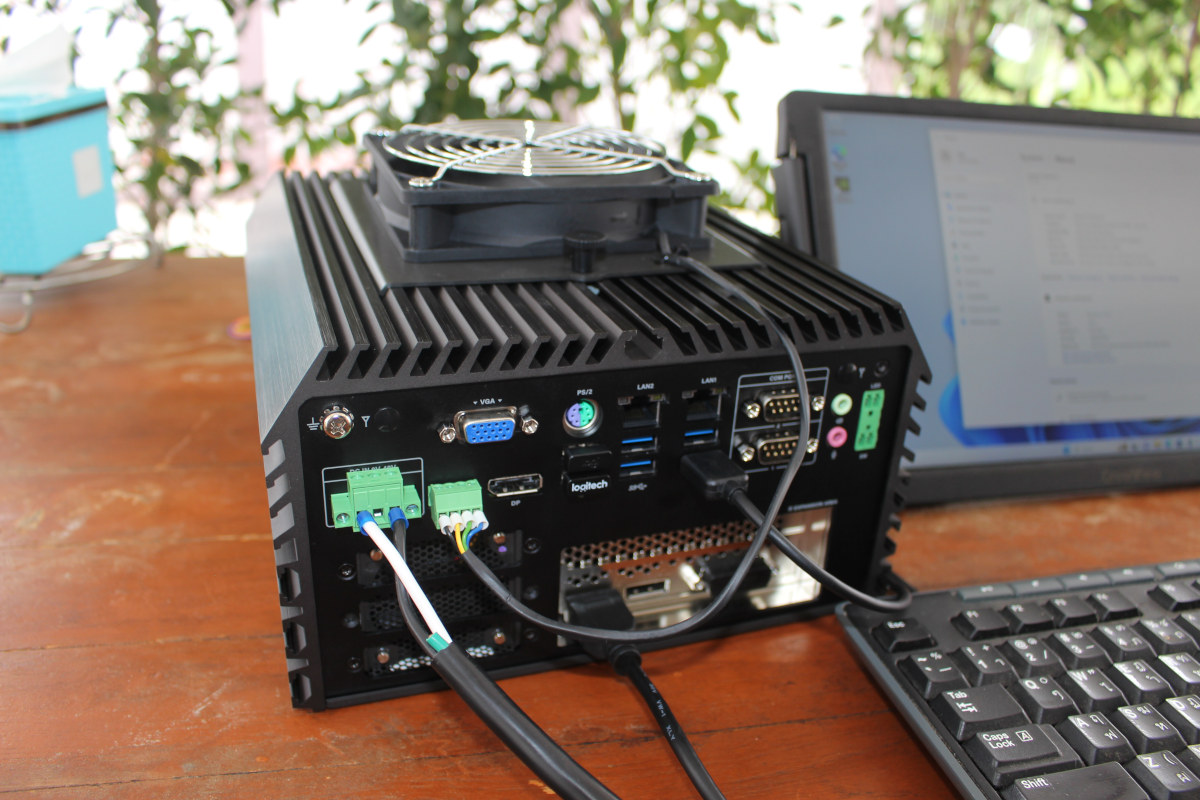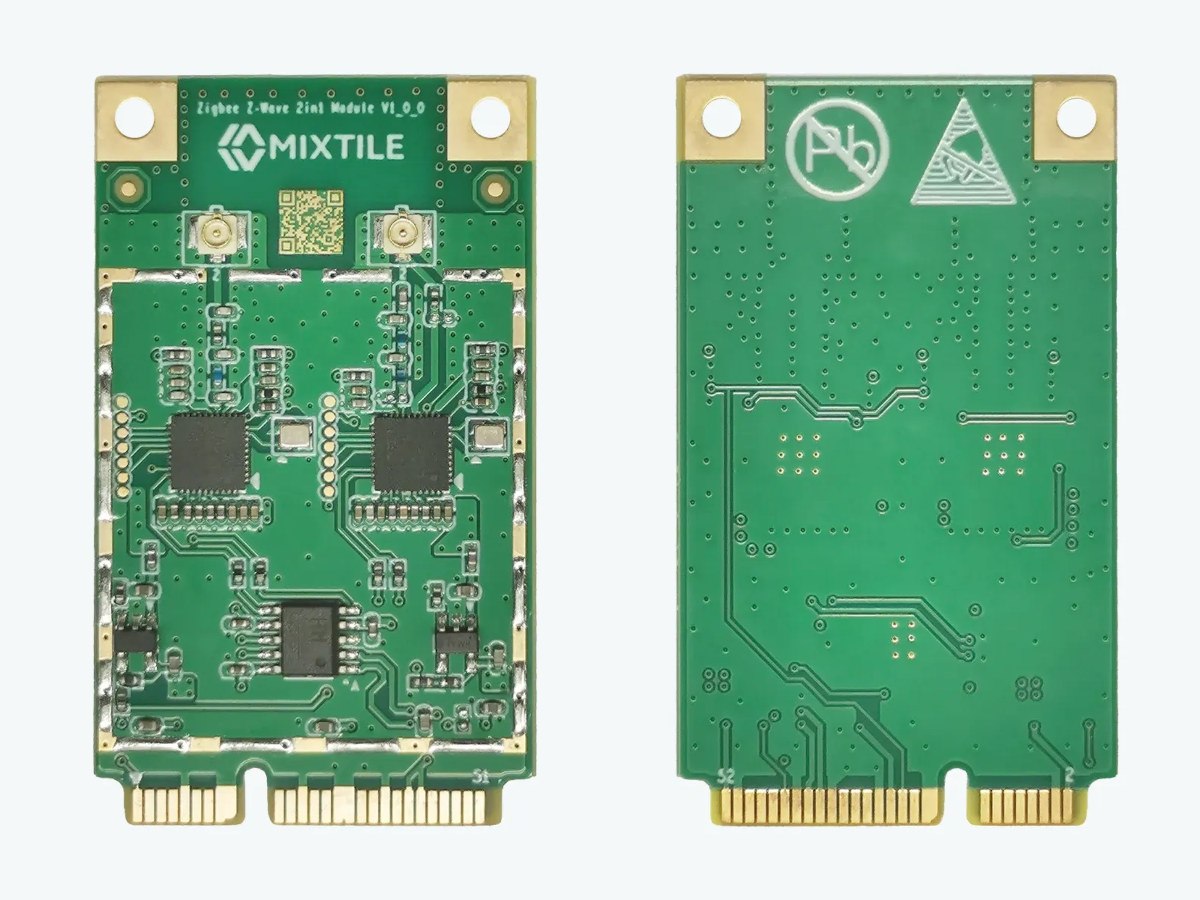Cervoz MEC-LAN-2631i is a tiny, industrial-grade M.2 2230 (A+E key) PCIe Ethernet expansion card adding 2.5GbE networking to any system with a spare M.2 socket with a PCIe x1 interface. The card could be useful in case you want to add an extra 2.5GbE port, or for a system that lacks wired networking. It’s based on the Intel I226-IT 2.5Gbps Ethernet controller and can operate in the -40°C to 85°C temperature range as an industrial-grade module. Cervoz MEC-LAN-2631i specifications: Host interface – M.2 edge connector with PCIe 2.1 x1 up to 5.0/2.5GT/s Network – 10/100/1000/2500Mbps isolated interface based on an Intel I226-IT controller with an RJ45 port on a separate module Power Consumption – 350mA @ 3.3V Safety – Surge protection up to 2kV Dimensions – 30 x 22 mm; M.2 2230 (A+E key) form factor Temperature Range – Operating: -40°C to 85°C; storage: -40°C to 125°C Mounting – Cervoz’s […]
ODROID-H3/H4 x86 SBCs get M.2 PCIe Gen 3 x4 expansion cards with two or four M.2 sockets
ODROID-H3 and ODROID-H4 x86 single board computers have gotten two affordable M.2 expansion cards with the M.2 2×2 card adding two PCIe Gen 3 x2 slots and the M.2 4×1 adding four PCIe Gen 3 x1 slots (ODROID-H4 only) to the Intel SBCs. We’ve seen plenty of PCIe HAT+ boards for the Raspberry Pi 5 since the launch of the Arm SBC last year, but it’s limited by its PCIe Gen2/Gen3 x1 interfaces, and Hardkernel now provides two new M.2 cards leveraging the M.2 PCIe Gen3 x4 socket of the ODROID-H3/H4 family allowing users to add up to four M.2 PCIe modules for storage, wired or wireless connectivity, and/or AI acceleration. M.2 2×2 card for ODROID-H3 and H4 series The M.2 2×2 card also named “M.2 – NVME” adds two M.2 Key-M PCIe sockets for 2280 size modules with each having a PCIe 3.0 x2 interface supporting up to 16GT/s. […]
QNAP unveils TS-432X and TS-632X Arm-based NAS with 10GbE networking, up to six SATA bays
QNAP has unveiled TS-432X 4-bay and TS-632X 6-bay Tower NAS systems that feature not only 2.5GbE ports but also one or two 10GbE SFP+ cages, as well as one PCIe Gen 3 x4 slot and are powered by an Annapurna Labs Alpine AL524 4-core 64-bit Arm processor. We had seen NAS with 10GbE networking before such as the QNAP HS-453DX and ASUSTOR FLASHSTOR, but those were powered by Intel processors. The new TS-432X and TS-632X NAS systems combine a 64-bit Arm processor and 10GbE networking in a way similar to the earlier QNAP TS-431X-2G-USARM powered by a dual-core 32-bit Arm CPU. QNAP TS-432X/TS-632X specifications: SoC – Annapurna Labs Alpine AL524 4-core 64-bit Arm processor @ up to 2.0 GHz System Memory – 4GB DDR4 (non-ECC), upgradeable up to 16GB DDR4 (ECC memory supported) via SO-DIMM socket Storage 512 MB flash with dual boot OS protection Drive bays TS-432X – […]
N-Fuse PoE HAT for the Raspberry Pi 5 also includes mini PCIe or M.2 Key-M/E/B sockets
N-Fuse has designed a PoE HAT for the Raspberry Pi 5 SBC that also serves as a PCIe expansion board thanks to either a mini PCIe socket or an M.2 Key-M, Key-B, or Key-E socket supporting 2230, 2242, or 3042 modules such as SSDs, AI accelerators, or wireless modules. The SBCPoE RPi5 HAT complies with the latest 802.3bt standard delivering up to 25W with active cooling or 15W with passive cooling. The HAT board still allows users to make use of the 40-pin Raspberry Pi 5 header thanks to a 40-pin Raspberry Pi interposition header. SBCPoE RPi5 HAT specifications: Power Supply IEEE 802.3af/at/bt compliant Overload protection 25W power delivery with active cooling, 15W without active cooling Output current up to 5A 5V output via optional 2.54mm pin header High efficiency (> 85%) enabled by active MOSFET bridge rectifier Short-Circuit Duration – infinity PCIe expansion (one or the other) Mini PCIe […]
Cincoze DS-1402 review – Part 2: An Intel Core i9-12900E embedded computer tested with Windows 11 Pro
I’ve already checked out the hardware of the Cincoze DS-1402 modular embedded computer in the first part of the review with an unboxing and teardown of the Intel Core i9-12900E computer that ships with expansions such as an NVIDIA GTX 1630 graphics card held in place with a patented solution and two CMI expansion modules with four gigabit Ethernet ports each. I’ve now had more time to test the Cincoze DS-1402 with Windows 11 Pro, so I’ll report my experience with the system in the second part of the review checking out system information, testing features, running benchmarks, evaluating networking and storage performance, testing the thermal design, and taking measurements for fan noise and power consumption. I’ll also compare some of the second to the GEEKOM XT12 Pro mini PC powered by an Intel Core i9-12900H SoC since embedded SKUs – like the Core i9-12900E – are usually slightly slower […]
RealTek RTL8126 5Gbps Ethernet PCIe and M.2 adapters are now available for $12 and up
The low-power RealTek RTL8126(-CG) PCIe 3.0 x1 to 5GbE controller was unveiled at Computex 2023 last year, and a few M.2 modules and PCIe cards are now available at very competitive prices. The first module that came to my attention was the “5000Mbps Networking Card B+M Key to PCIe Adapter” from STDEV sold for $27 on Amazon (where there’s also a 7% discount) that’s an M.2 PCIe module with a ribbon cable that is connected to a board with an RJ45 jack attached to a PCIe bracket. There’s limited information about it, and it was just added to Amazon on June 8, so there aren’t any user reviews just yet. But earlier today, Jiri Brejcha informed us he had tested a similar card (might even be the same) from Iocrest with a Raspberry Pi 5 and a Pineboards HatDrive BM1 HAT+ managing to reach 4.7 Gbps transfer speeds in both […]
Cincoze DS-1402 modular embedded computer review – Part 1: Specs, unboxing, teardown, and first boot
Cincoze has sent me a sample of the DS-1402 modular embedded computer for review. The system is offered with a range of 12th Gen Alder Lake-S or 13th Gen Raptor Lake-S processors and features various expansion options with two PCIe slots, two CMI module slots, a CFM module slot, and three MEC (mini PCIe) module slots. The review sample is equipped with an Intel Core i9-12900E 16-core Alder Lake-S processor, 64GB DDR5 memory, a 512GB NVMe SSD, and an NVIDIA GTX1630 graphics card inserted into one of the PCIe slots. The company also fitted the embedded system with two CMI modules on the front panel with four GbE (Intel I210) RJ45 each. Cincoze DS-1402 specifications When we first wrote about the Cincoze DS-1400 series in 2022 only 12th Gen Alder Lake-S processors were available, but the company has now added 13th Gen Raptor Lake-S processors to the list of options. […]
$20 Zigbee & Z-Wave mPCIe module targets Home Assistant gateways
Mixtile’s “2-in-1 Zigbee & Z-Wave mPCIe module” is a relatively inexpensive way to add Zigbee and Z-Wave connectivity to a Home Assistant server without having USB dongles sticking out of the server and taking some of its spare USB ports. The module is compatible with any computer, gateway, or SBC with a spare mini PCIe socket featuring a USB 2.0 interface such as Rockchip RK3568-powered Mixtile Edge 2 Kit gateway. You’ll also need some way of mounting the antennas after connecting them to the IPEX-1 antenna connectors on the module, the Edge 2 Kit comes with multiple antenna holes. Mixtile 2-in-1 Zigbee & Z-Wave mPCIe module specifications: Wireless MCUs Silabs EFR32MG24 Arm Cortex-M33 @ 78.0 MHz with 256 kB RAM, 1536 kB flash Radio Frequency – 2.4 GHz (802.15.4 radio) TX Power – up to +19.5 dBm RX sensitivity – -105.4 dBm at 250 kbps Protocols – Zigbee, Matter, Thread […]


